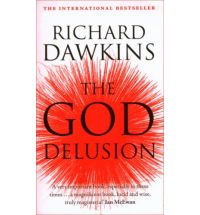 My recent exchanges with Jerry Coyne and one of his followers eerily reminded me of previous exchanges I have had with a few biblical scholars: Larry Hurtado, Chris Keith, James McGrath, and others, as well as follows of Acharya S / D.M. Murdock.
My recent exchanges with Jerry Coyne and one of his followers eerily reminded me of previous exchanges I have had with a few biblical scholars: Larry Hurtado, Chris Keith, James McGrath, and others, as well as follows of Acharya S / D.M. Murdock.
Then last night I happened to read the following:
The American Family Foundation says the following attributes are characteristic of a cult:
- The group members display an excessively zealous, unquestioning commitment to an individual.
- The group members are preoccupied with bringing in new members. Members are expected to devote inordinate amount of time to the group.
- Members are preoccupied with making money.
- Members’ subservience to the group causes them to cut ties with family and friends, and to give personal goals and activities that were of interest to the group.
- Members are encouraged or required to live and/or socialize only with other group members.
Most of these attributes, as we will see, are characteristic of the cult of New Atheism.
[There are other lists of characteristics. Understandable since “cult” covers a wide range of groups in the common usage of the term. I wonder if some of the less overtly authoritarian types are better described as “tribalism” — but we know what we don’t like when we see it, however we define it, I guess. The above characteristics are closer to what I meant by describing D.M. Murdock /Acharya S’s astrotheology advocates as “cultish”.]
Brown lists a collection of comments that were collected by one of Dawkins’ followers at a book signing. Dawkins tweeted to his followers the list:
“You’ve changed the very way I understand reality. Thank you Professor.”
“You’ve changed my life and my entire world. I cannot thank you enough.” “I owe you life. I am so grateful. Your books have helped me so much. Thank you.”
“I am unbelievably grateful for all you’ve done for me. You helped me out of delusion.”
“Thank you thank you thank you thank you Professor Dawkins. You saved my life.”
“With this kind of incense blown at him, it’s no wonder he is bewildered by criticism,” writes Brown. Like any religious text, Dawkins’ book The God Delusion contains contradictions that are ignored by his followers:
In The God Delusion itself he moves within 15 pages from condemning a pope who had baptized children taken away from Jewish parents to commending Nick Humphrey’s suggestion that the children of creationists be taken away because teaching your children religion is comparable to child abuse. So believers can always find a scripture where he agrees with them, which naturally cancels out the one where he doesn’t.
[Isn’t that what we’ve seen in some of the recent exchanges here over what Coyne and Harris are supposed to have said.] Continue reading “Atheism, Cults and Toxicity”


